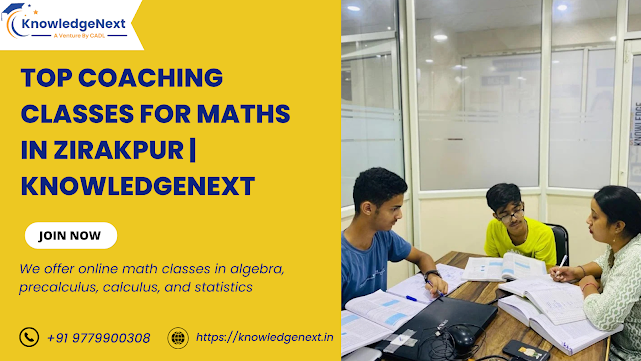Is Coaching Necessary for Class 12?
The 12th-grade academic session is one of the very critical ones in a student's life. The pressure for performance is very high since board exams are conducted during this year, along with added pressure for competitive exams like NEET, JEE, or CUET. Most students and parents usually ask whether it is necessary to teach for 12th grade? Can students take charge of their learning, or do they need a third party to guide them in their pursuit of learning?
In this blog, we look into the merits and demerits of coaching 12th-grade schooling, if it has a contributory role in the academic success of students, and if it's necessary or an alternative.
12 Classroom importance
It is necessary to understand first why Class 12 is so important before heading into whether training is necessary. Performance in board exams shapes most learning for the students, and this year it is more so for students who want to join professional courses like engineering, medicine, and law. Competitive exams after Class 12 further underscore the impetus to do well this year.
But what happens is that students shoulder the burden and risk of balancing school work and entrance exam preparation. Generally, future work depends on the outcome of such crucial tests.
12 Benefits of Classroom Training
1. Controlled Learning Environment
Perhaps the most important advantage of joining a training course in Grade 12 is that the learning environment is structured. School curriculums are broad in scope covering all subjects; however, there never seems to be enough hours in school to examine each topic fully. Training institutes offer a well-structured curriculum that matches school curriculum and competitive examination requirements.
Under such a plan, the student keeps abreast of his studies in order not to fall back behind the class. 1739
2. Competent and experienced faculty
Another crucial advantage of training is to get experienced competent teachers. Teachers in training centers are often experts in their fields and have spent years preparing students for board and competitive exams. They are familiar with testing techniques, common pitfalls, and important issues commonly found in tests.
These expert guidelines can be very priceless, mainly for topics like physics, chemistry, or mathematics in which the students may encounter difficulty with tough reasoning and strategies of problem-solving.
3. Personal level management of stress and uncertainty
Many such training centers keep the batch size relatively small so that proper attention can be provided to the trainees. Where in a school classroom, for example, one teacher has to take care of a large group of students, training courses demand a tremendous amount of one-to-one interaction. Students may approach their teachers with questions and clear out all their doubts early, which is all the more essential for strengthening conceptual understanding.
This is usually the basic management of debate at most training centers. Such sessions would help the students clear all their doubts and then understand the same stuff thoroughly before moving on to more advanced material to be dealt with.
4. Regulation of the student's performance with regular supervision
Evaluation tests, including mock tests, are integral to the preparation for Class 12. These serve as an opportunity for students to check up on their understanding and prepare themselves for the pressures of the real test. As training centers simulate exam-like situations, the time management skills of students are developed and anxiety during exams is reduced.
It also provides for detailed feedback after each test so that the student can indicate areas of weakness and areas that have room for improvement. Such is not always the case in schools, although what exists is smaller and less stringent assessments.
5. Advanced textbooks
An institution of training usually delivers pretty well-equipped learning materials to the students. These materials comprise short essays, practice problems, and even the question papers of previous years. Mainly designed to prepare students for board exams and competitive entrance exams, these materials often cover important topics in a focused manner than conventional textbooks.
Quality learning materials ensure that students are able to research effectively, try the problems, and hence boost confidence as they approach their examination.
6. Motivation and peer learning
The study process with peers who are very serious will be very motivating. The training centers bring students together who are serious and highly interested in excelling in their exams, creating a great positive learning atmosphere which fosters healthy competitiveness in the face of studying amongst the students. Students can learn from one another, share their study tips, and encourage others to pay attention.
In addition, those teachers in training centers often act as mentors, providing emotional support and motivation during stressful times before exams.
Challenges of 12th-grade training
Despite the advantages, training has some disadvantages. The disadvantages of 12th-grade training include:
1. Time management
Most students find one of the biggest dilemmas of attending training as time management. Between schooling, attending classes and self-study, students may have a tight schedule for. These can cause burnout, and some students may even not cope well with the demands of schooling and training.
Effective time management will be required to work out all these commitments without sacrificing mental and physical well-being.
2. Financial burden
Training classes are pretty cost-prohibitive, and therefore, not every family can afford them. Even though many training institutes are good for quality education, their fees become a huge financial burden for families when the student is also preparing for a competitive exam that requires further training in itself.
Before training, a family would be wise to sit down and review the budget before entering a training program, ensuring that the benefits really outweigh the cost.
Overuse of training:
Sometimes, students become dependent on the coaching institution to such an extent that they do not even know how to work alone. While coaching does guide students, its role places the burden of responsibility on the shoulders of students to learn freely, to gain freedom, and to assume full responsibility for learning. Over-reliance on coaching could lead to bad effects in the long run, when the student himself has to face the challenges in college or in future work.
Is training essential for everyone?
Grade 12 needs are different for the student. While some do much better in the well-structured learning environment that is school and can learn largely on their own by supplementing with online courses or self-directed learning to fill in the blanks, others may need as much assistance as possible, and the only thing that training lends is through reputation.
Some things to consider when you're trying to figure out if you need training:.
Learning Style: Some students prefer more facilitation and a structured learning environment, while others prefer to be more independent in managing their learning without any external help.
Academic Performance: Those with consistent academic performance in the classroom may not need tutoring services, while those that frequently struggle in certain areas may appreciate supplemental help.
Objective: All students who are preparing to take extremely competitive exams in NEET, JEE, or any other vocational course are going to hugely benefit from the training due to the effort needed to prepare themselves.
Self-discipline: Those students who are able and can motivate themselves, as well as are self-disciplined, will also be able to achieve their learning objective without needing the services of tutoring.
Conclusion: Is training necessary for Grade 12?
This is not to say that it must be rendered to every Grade 12 student, but something that they may require according to their needs as learners and as individuals. For example, if a student needs improvement in his mathematics skills during his advance year then tutoring is necessary, else good for him.
Lastly, it is tutoring that can really be seen as providing the real hard work and grit from a willing student who can be disciplined. That student genuinely wants to succeed at the board exams and competitive entrance exams will become a fantastic asset for a tutor. A student, however, who believes that he can handle his own learning is not going to need tutoring at all.
Decisions about which training options one would consider or pursue should come from a need of oneself, with attention to what would contribute toward the academic success and long-term goals of the student.



Comments
Post a Comment